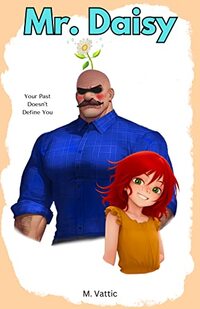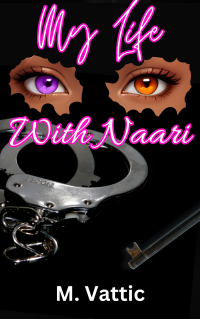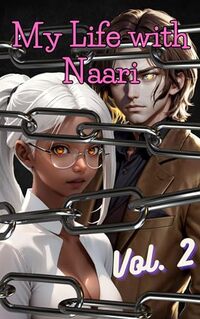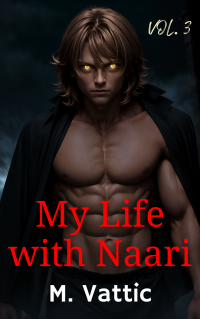Your writing often reflects your experiences growing up in Minnesota. Can you share a specific memory or aspect of your childhood that has significantly influenced your writing?
A major influence in my life that made me want to make my own stories was a GameCube game called Tales of Symphonia. I would make fan fics in my head for that story, and that led to making my own stories.
Given your background with a family affected by mental illnesses, how do you approach portraying such characters in your writing? Are there specific challenges or considerations you keep in mind?
I approach these characters fairly bluntly and am opposed to sugar-coating their instability. But I do not define them by their mental illness. That’s not really a character, is it? It’s just a factor or an obstacle among many that shapes who they are.
Breaking away from alcoholism is a significant accomplishment. How has this personal journey shaped the themes or characters in your book, and what message do you hope readers take away from it?
Life sucks. But either you self-pity and suffer or aim to become an evolved and improved version of yourself. I was the former until I broke and became the latter.
Your writing is described as featuring odd and unique characters in tongue-in-cheek situations. Can you share an example from your book, “Mr. Daisy,” that encapsulates this style, and what draws you to these types of characters and scenarios?
Quincy Daisy is a man who’s had a horrific life in a war-torn country and had lost his sister because of his mistake. Internally, he’s miserable. But that misery is prodded at by odd encounters such as being covered in frogs while being interviewed by the news. Serious characters need absurdities to make them relatable. I just go a bit unrealistic sometimes.
Growing up in the sticks of Minnesota must have provided a unique perspective. How does the setting influence the atmosphere and tone of your stories?
I grew up in a very boring town with a down-to-earth community. I still hate it, but I learned to appreciate the simple, slow, and the mundane. Even in an action story where the world is on the line, sometimes you have to wash the dishes.
Committing to your childhood dream of becoming an author is a brave decision. What motivated you to take this path, and how has it impacted your life and writing?
I was abandoned by nearly everyone around me at one point, so I decided to bring the worlds in my head to life so I’d never be truly alone again. Even though I know they’re fake, my characters are my children.,
Incorporating heavy life moments into your writing can be emotionally challenging. How do you balance the personal with the creative when crafting your stories?
There is no balance because they are one in the same.
Your preference for odd characters suggests a love for quirkiness. How do you go about creating and developing these characters, and do you draw inspiration from real-life individuals?
I make a character and give them both a relatable and unrelatable flaw, personality, skill, and past. Parts have to be believable so the extreme oddities are understandable. If I do take from real life people, I basically cartoonify them to the extreme, then back it up enough to create a person. Anime characters are a great example of this, which was the greatest inspiration for my character creation methods.
How do you ensure that the humor enhances the narrative without diminishing the impact of the underlying themes?
I place humor in parts of the story where I feel like the seriousness needs to be balanced out. Not all the time. You need your heavy moments to be just that, but that could inadvertently create a humorous situation in the future that helps characters cope and breathe for a moment. I’m still trying to get the balance down myself.
Your book seems to reflect a journey of resilience and self-discovery. How do you navigate the fine line between autobiography and fiction, and to what extent do you draw from your own experiences?
A good amount of my experiences are fiction, if that makes sense. I’m bipolar, and growing up, I wasn’t really present a lot. I was stuck in my own head, thinking of scenarios that may or may not happen. So, I suppose I draw a lot from my experiences, even if they weren’t truly mine.
Are there specific authors or literary influences that have inspired your writing style, especially when it comes to incorporating heavy life moments with humor?
Well, Natalie Babbit’s Tuck Everlasting has one of the darkest ideas wrapped around a little fantasy slice of life kids’ story. Winnie Foster was planned to be used as an immortal child to be tortured to sell a product. I found that underlying darkness behind a mostly bright story to be wonderful. As for the humor, again, anime comes to mind, specifically Gintama. An anime whose genre is “yes.”
The title of your book can be quite revealing. How did you come up with the title, “Mr. Daisy” and what significance does it hold in capturing the essence of your work?
I wanted a huge, scary, strong guy to have the dumbest, ill-fitting name possible. Quincy Daisy was born of that. That choice is my work in a nutshell.
Your journey from alcoholism to authorship is inspiring. What advice do you have for others facing personal challenges who aspire to pursue their creative dreams?
Just do it. You suck, and no one cares about your work. Eventually, people will come to see your work when it doesn’t suck. Have the mindset that you will never create a masterpiece, but you will always get better.
What do you hope readers will take away from your book, especially those who may relate to the struggles of mental illness, addiction, or pursuing their dreams against all odds?
I’d have to use the main idea of the book. “You are shaped by your past, but it doesn’t define you.” Life is horrible and great, and that helps you evolve into a better version of yourself, but only if you try.
When did you join AllAuthor? What do you think of the experience so far? Do you have any feedback?
No idea. Six months ago, maybe. It’s alright, nothing I really thought about. No real feedback. It’s fine the way it is.






